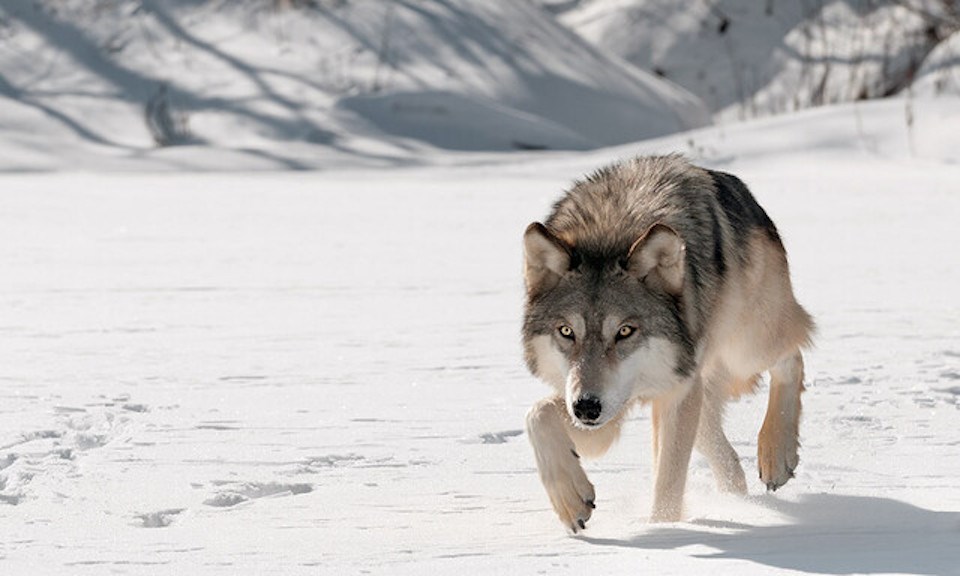B.C.’s government is continuing wolf kills this winter while planning a moose population survey, all part of plans designed to assist central mountain caribou populations.
“We know that predator management is an effective, temporary measure to halt and reverse population declines and local extinctions of caribou in B.C.,” the Ministry of Water, Land and Resource Stewardship told Glacier Media. “Predator management helps herds by increasing the rate of calf survival and reducing adult cow mortalities.”
Still, the ministry stressed, the decision to reduce predator populations is not taken lightly. Treatment is only undertaken when there is evidence that wolf populations contribute to declining caribou herds, the ministry said.
In documents inviting contractors to submit bids, the Ministry of Water, Land and Resource Stewardship is seeking a company with a helicopter to do 40 hours of aerial work with the objective of assessing “moose population response to continuous intensive wolf removal.”
The count is projected to run December through February with the proposed outcomes being “continuing and improving long-term monitoring of central mountain caribou and primary prey species.”
The work would also assess the impact of ongoing caribou recovery actions and collaborating with First Nations on caribou recovery actions.
The work would be staged out of Chetwynd in northeastern B.C.
The ministry said there are an estimated 37,500 to 60,500 moose in northeastern B.C., with about 153,000 provincewide.
“The province continues to monitor moose populations in areas where there have been wolf removals, and wolves are a predator for moose,” the ministry said.
The ministry estimates there are approximately 8,500 wolves (ranging between 5,300 and 11,600) in B.C.
“Without addressing high predation pressure from wolves, many caribou herds could face the risk of local extinction,” the ministry said. “We monitor wolf populations closely to ensure that we have the best data available to support decisions related to predator management."
Caribou population protection has been a key issue for the province for some time and led to the creation of the Provincial Caribou Recovery Program (CRP) in 2017.
“Multiple measures are required to help stabilize and reverse this iconic species’ decline,” the ministry said. “There is strong evidence that the CRP is reversing the decline of caribou populations across B.C.”
The CRP web page said due to significant changes in the species’ preferred habitat over the last century, the number of B.C. caribou has dropped from about 40,000 animals to about 17,000, with the steepest declines occurring over the past 40 years.
Scapegoats
Aaron Hofman, director of advocacy and policy for The Fur-Bearers animal rights group, said the province hires contractors to shoot hundreds of wolves from helicopters every winter.
Hofman provided a Ministry of Water, Land and Resource Stewardship document that said, “A total of 217 wolves were removed through aerial shooting and eight cougars were removed through ground-based hunting, at a cost of approximately $1.65 million.”
“These keystone species are being used as scapegoats and killed to offset the destruction of critical caribou habitat caused by resource industries,” Hofman told Glacier Media. “A recent public opinion survey shows that the majority of Canadians believe that the killing of wolves is wrong, even if it's done to save another species.”
Hofman said that survey found 83% of Canadians believe wolves are important members of the ecosystem and should be protected.
“The war on wolves by the B.C. government is unethical, unscientific, and needs to end,” Hofman said.
The ministry documents said a wolf reduction program began in 2015 and that the last moose count was done in 2018.
“As part of ongoing efforts to monitor the response of moose populations to consecutive years of wolf reduction, the province is committed to conducting moose population inventories every five years,” the documents said.



